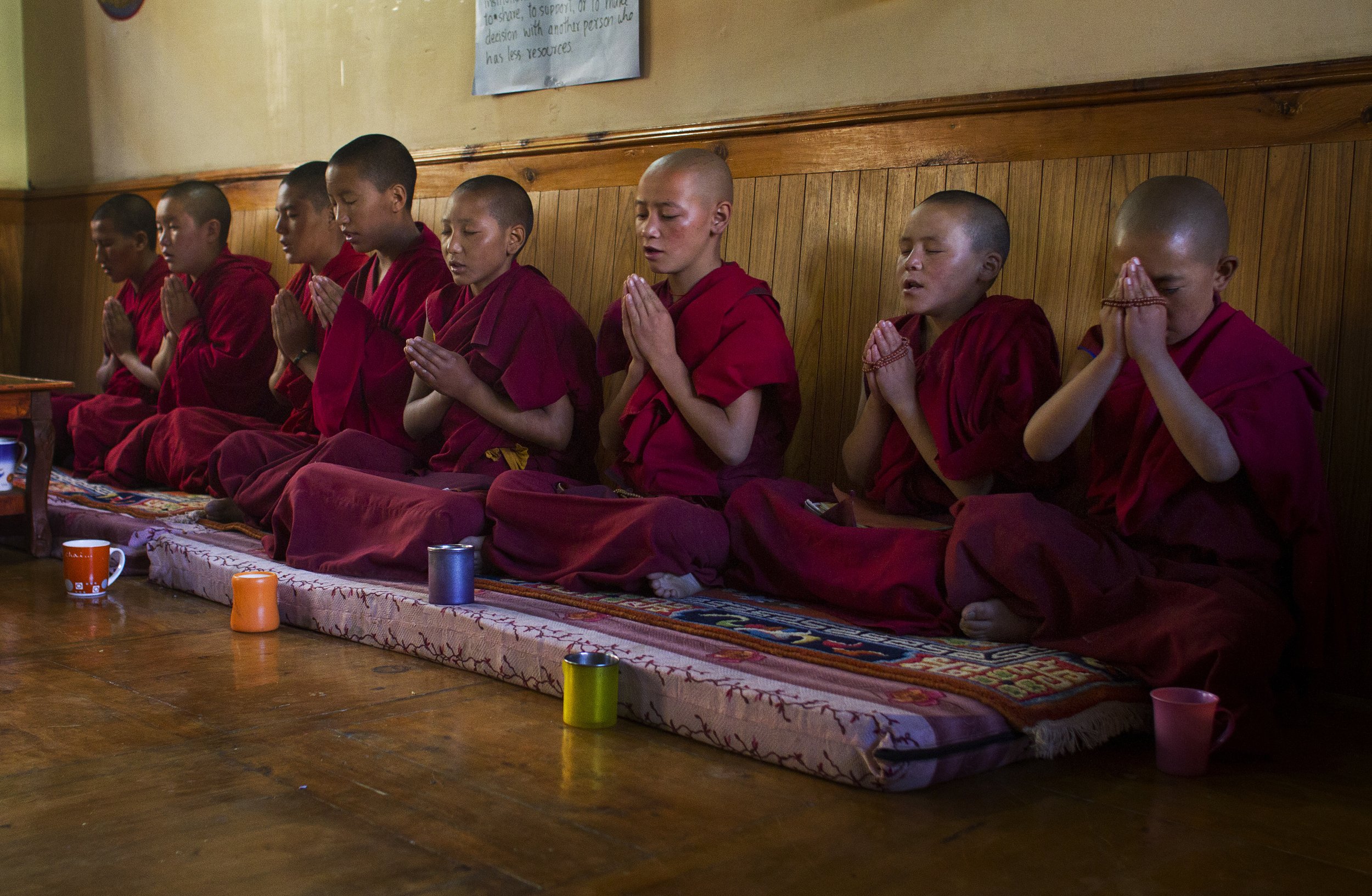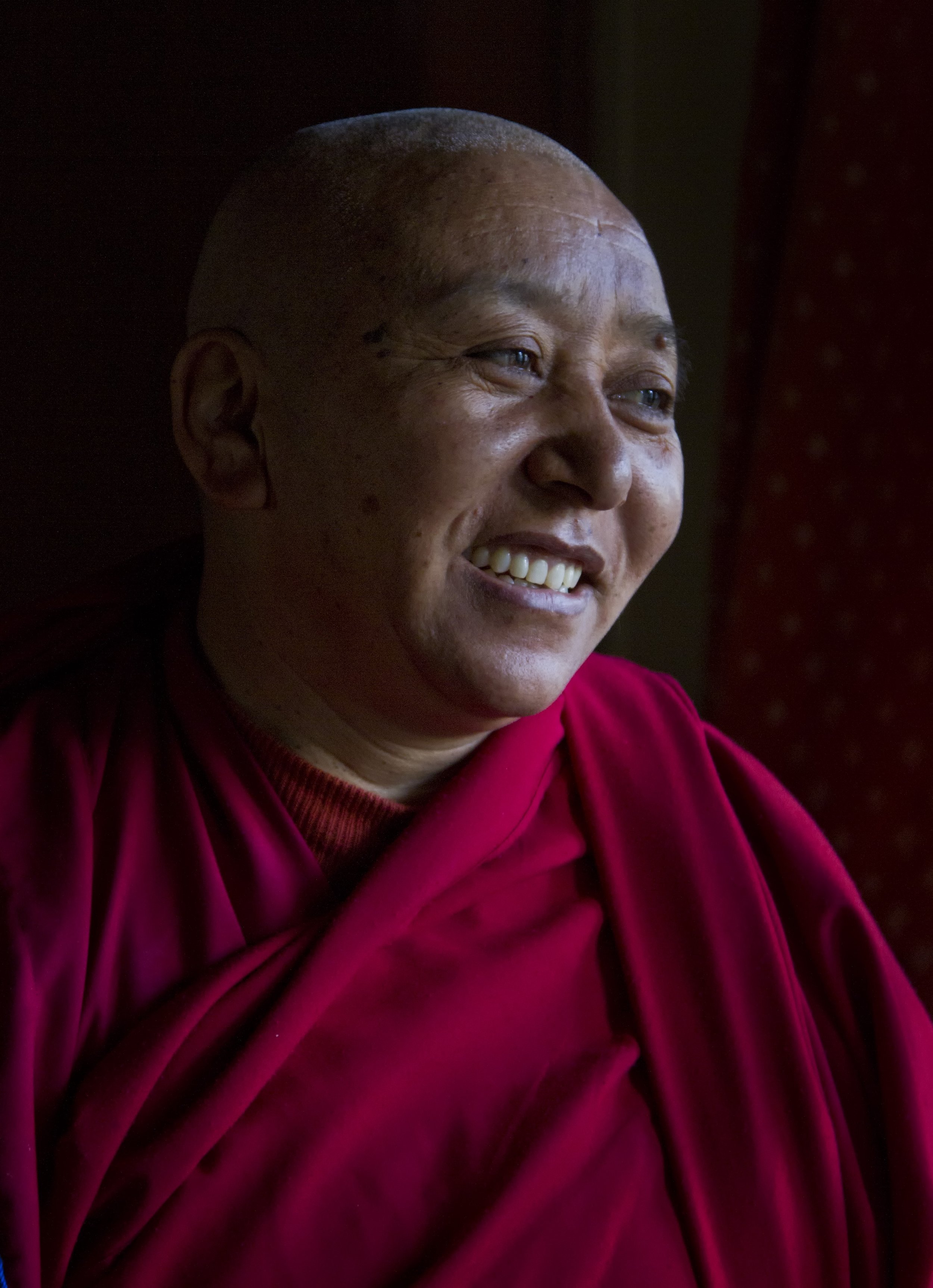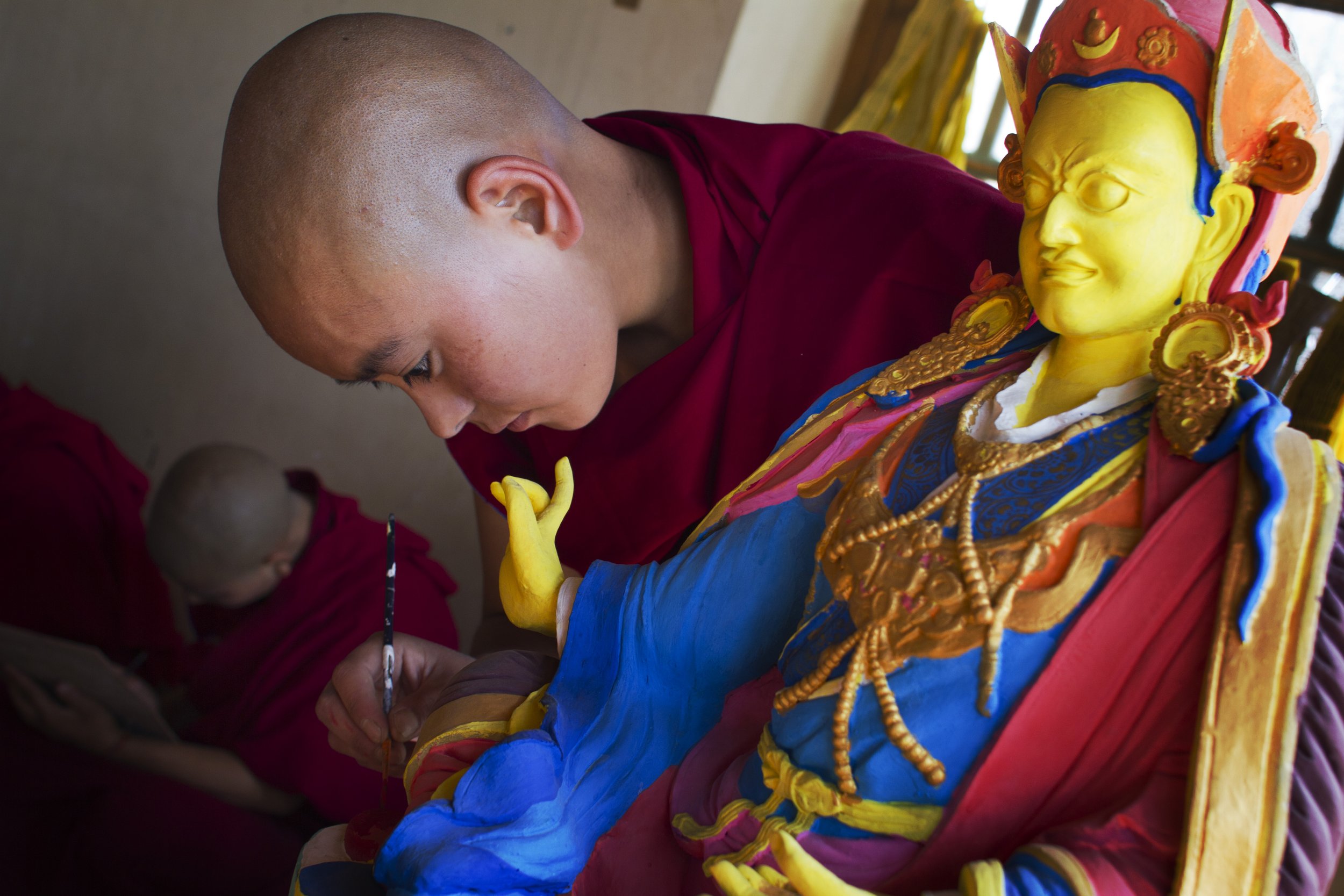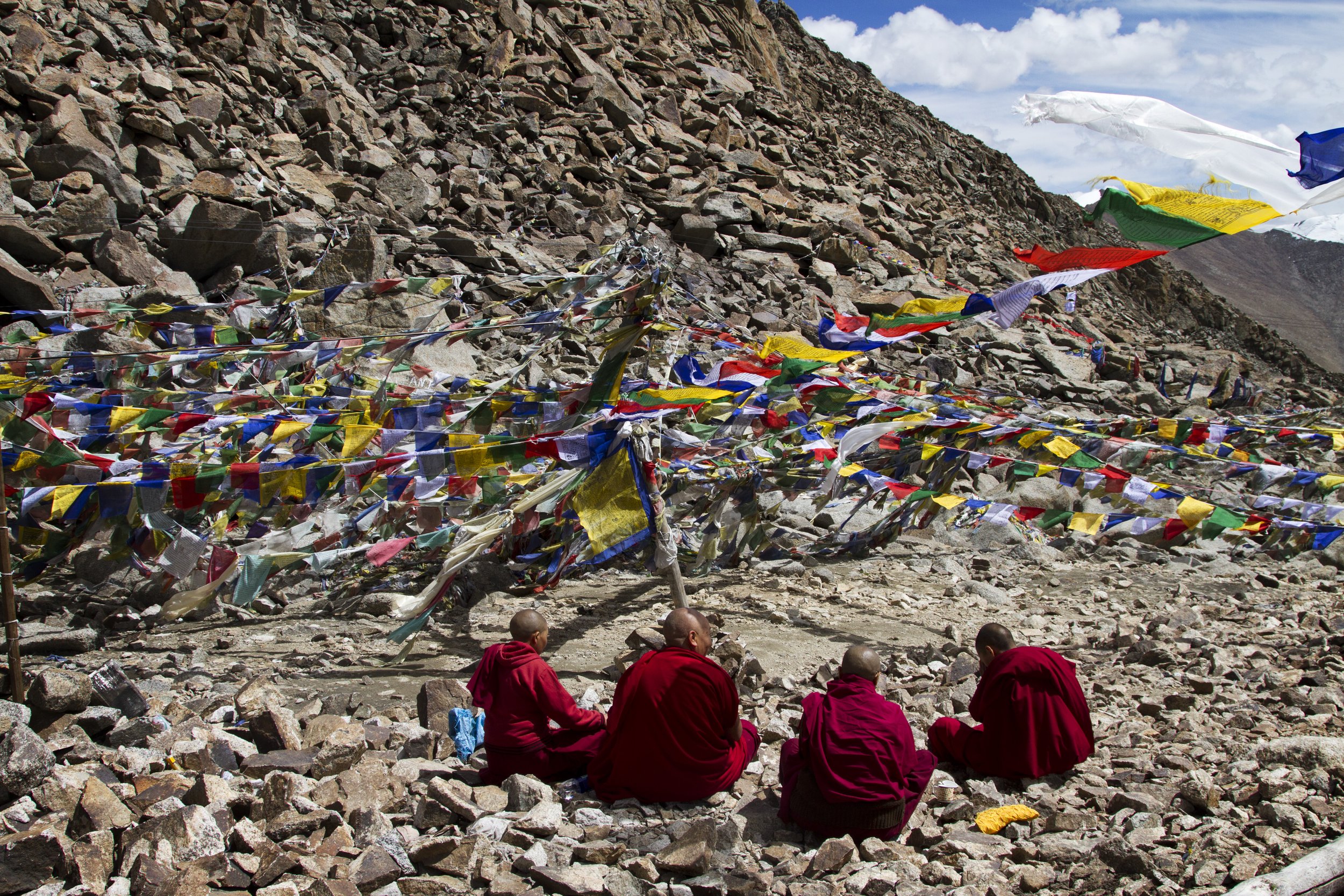
“Engaged Buddhism is the Philosophy and Way of Life for the Ladakh Nuns Association,” Venerable Tsering Palmo
The Ladakh Nuns Association (LNA) was established in 1996 by Venerable Sramnerika (Ge-Tsul-ma) - Dr. Tsering Palmo, and was inspired by the visionary guidance of His Holiness, the 14th Dalai Lama. During a visit to Ladakh in 1999, His Holiness emphasized the importance of promoting the welfare and spiritual education of nuns, advocating for equal opportunities in ordination, education, and leadership for both men and women. He envisioned a future where nuns too could achieve advanced degrees, such as the Geshe (PhD in Buddhist Philosophy), and contribute to their communities as spiritual teachers and leaders.
Guided by this vision, Venerable Dr. Tsering Palmo—the first ever Ladakhi nun trained in Herbal Medicine at the Tibetan Medical Institute in Dharamsala, India—founded the Ladakh Nuns Association (LNA) to address the dire conditions faced by Buddhist nuns throughout the Ladakh and Zanskar Ranges. The non-profit association has since worked tirelessly to provide non-secular educational opportunities and AMCHI (Traditional Tibetan Medicine) studies, leadership training, and spiritual support to nuns and laywomen alike, while raising awareness of their challenges within society.
Today, LNA continues to honor His Holiness’s aspiration for the betterment of nuns by striving to create a fully fledged institute which aims to:
Provide nuns with safe and practical means to study Dharma (Buddhism), non-secular education and pursue advanced education options for those wishing to study AMCHI Traditional Tibetan Medicine.
Promote and develop the health and well being of the local community, and the rural and nomadic areas of Ladakh and Zanskar ranges by providing health services, promotions and initiatives via LNA’s Community Health Clinic in Leh.
Promote and preserve all schools of Buddhism (Mahayana, Theravada, and Vajrayana) and meditation practices, and foster a non-sectarian and inclusive approach to Buddhist studies.
Empower and build the capacity of the nuns as spiritually and socially engaged members of society, and encourage self-reliance and sustainability among nunneries and individual nuns.
Demonstrate the relevance of the Dharma to modern life through the philosophy of ‘Engaged Buddhism,’ alleviating suffering among women, youth and the eldery.
Include laypeople, especially women, in all spiritual, health and educational initiatives where possible.
Through this work, LNA upholds both the His Holiness, the Dalai Lama and Venerable Tsering Palmo’s vision for a more equitable and enlightened future, whilst enriching the Ladakhi society through spiritual guidance, education, traditional medicine & healthcare, and cultural preservation.
Photography, Ashwini Bhatia & Michael Fountoulakis
Design & Graphics, Bombay Ink
Leh མཉམ་དུ Ladakh Ranges, India
Between 2010 and 2014, Milam Projects worked in collaboration with the Ladakh Nuns Association (LNA) across a series of and long-term initiatives supporting the education of the nuns — including both Buddhist and secular studies, graduate-level training in AMCHI Traditional Tibetan Medicine studies at the Men-Tsee-Khang Institute and other grassroots health initiatives.
Initially, our first project involved partnering with Architects Without Borders to create a comprehensive scoping document for the future LNA Institute in Leh. This process brought together the nuns, their leadership and design professionals to articulate the aspirations, values, and building concept design for a centre of learning rooted in Tibetan Buddhist practice with a focus on the upliftment of the sangha (nuns), and in particularly women’s education and empowerment. Community consultation alongside cultural mapping helped shape a vision that could integrate an educational space, traditional knowledge systems, sustainable infrastructure and solar design suited to the high-altitude and severely climate affected realities of the Ladakh Ranges in the Himalayas.
In 2012, Milam initiated the production of the ‘LNA Prayer Book and CD Project,’ a recording of traditional chants and prayers performed live by the nuns at the nunnery in Leh. The project book combined Ladakhi script, phonetic guides, Ladakhi translations were supported by senior linguist and ranslator Mr. Tenzin Tsepag at the Office of His Holiness, the Dalai Lama, and original artworks by contemporary Tibetan artist Karma Sinchoe. This carefully produced set was then gifted to the nunnery to sell themselves as a product made by and for the nunnery. Over time, this project has generated over $20,000 in direct income, contributing to the nuns’ daily costs of living and strengthening their capacity for self-sufficiency.
Around this time, the nuns themselves established the LNA Community Health Clinic in central Leh, a remarkable achievement in health equity, offering free AMCHI Traditional Tibetan healthcare (pulse/tongue consultation, body therapy. herbal dispensary, psycho-social and spiritual support) to nomadic and semi-nomadic populations, local residents, and the long-standing diaspora of Tibetan refugees living in the region. With no government support, the clinic operates on a dana (donation) based model and where all care is provided voluntarily by the nuns under the careful guidance and vision of Dr. Venerable Tsering Palmo. In 2014, Milam Projects supported the clinic’s development by designing bilingual clinical data and research templates to document incidence of disease rates, treatment outcomes, and the distribution of herbal medicines. These tools, created in both Ladakhi and English, also included basic digital budget templates and anaylsis. Together, they helped to foster the culturally informed service delivery already in place, to improve health literacy amongst the health workers, and strengthen the clinic’s long-term capacity to serve remote and marginalised communities with professionalism and care.
In the winter of 2014, Milam Projects fully funded the seasonal and local harvesting and preparation of herbal medicines for distribution through the clinic’s first-ever ‘Winter Nomad Health Project.’ These medicines were then delivered to nomadic and semi-nomadic communities across Ladakh and Zanskar prior to the heavy winter season, providing vital health support during the harshest months of the year—when access to conventional and traditional healthcare is severely limited, if not entirely unavailable. The initiative for this season, expanded the reach of the clinic’s herbal dispensary and affirmed the value of outreach and community engagement, localised herbal medicines and traditional healthcare delivery.
Throughout this long-standing partnership, Milam Projects provided project management, event coordination, and fundraising support including a handful of scholarships for students of AMCHI Traditional Tibetan Medicine studies. Only via working in close collaboration with the nuns (sangha), Milam helped strengthen pathways of education, Buddhist practice, health equity and health care across the region.













